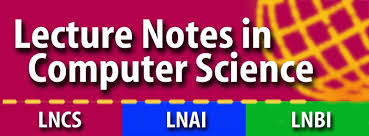SETTA 2016
Symposium on Dependable Software Engineering
Theories, Tools and Applications
Beijing, China, Nov. 9-11, 2016
- The final program is now available online and the booklet of the SETTA conference can now be downloaded. Please note the change of room of the conference venue: it is now in the Lecture Hall, 4th floor of the Building 5 (ISCAS). See the Conference venue page for details on how to reach the Institute.
- The registration for the FMAC 2016 co-located event is now open. Check the official registration page for details (Chinese only).
- The registration is open now. Check the registration page for details.
- The list of accepted papers is now available.
- The YR-SETTA 2016 co-located event is online. Check the official page.
- The FMAC 2016 co-located event is online. Check the official page (Chinese only).
- The submissions can be updated until June 24, 2016 (AOE time, UTC-12).
-
The deadlines for submitting the abstract and full version of the papers have been extended.
The new dates are:
- Abstracts: June 19, 2016
- Submission of papers: June 19, 2016




Formal methods emerged as a disciple area in computer science and software engineering half a century ago. An international community is formed researching, developing and teaching formal theories, techniques and tools for software modeling, specification, design and verification.
However, the impact of the theories, techniques and tools on the improvement of qualities of the daily used software systems is far from being convincing to software engineering practitioners. The gap between the development of formal methods and the advances in software technologies is not being seen becoming narrower. More precisely, the relation between formal methods and software technologies is not clearly understood.
This is clearly reflected by the challenges in application of formal techniques and tool in engineering large-scale systems with multi-dimensional complexities. Large systems include Cyber-Physical Systems (CPS), Networks of Things, Enterprise Systems, Cloud-Based Systems, etc.
This background is the motivation of this Symposium on Foundations, Practice and Trends in Formal Software Engineering Methods. The theme of the symposium is to promote research sharing, exchange of ideas and discussions on
- Theories, techniques, tools and their applications, the understanding on their impacts, weakness and what practical problems in software design they can solve effectively.
- Relations and common foundations of difference theoretical frameworks and their techniques so as to scale up their application to handle complex system design and verification;
- "Big and bold" ideas about how to make it more relevant to engineering practitioners by advancing formal methods research and development and improving education;
- Research and experiments on domain specific applications of formal techniques and tools.
The program of the symposium will consist of
- regular presentations on research findings related to the above thematic points,
- reports of progress of ongoing research and/or projects,
- position papers that propose challenges in fundamental research and technology development,
- industrial application cases and experiences of application of formal methods,
- presentations from PhD students on their research.
The purpose of the symposium is to bring international researchers to exchange research results and ideas with the Chinese computer science and software engineering community. It is the hope to develop understanding of the research of different groups so as to build up closer and interest-driven research collaboration. The symposium is aiming at its academic excellence and its objective is to grow up to become a flagship conference on formal software engineering conference in China.
To achieve these goals and contribute to the sustainability of the formal methods research, it is important for the symposium to attract young researchers into the community. Thus, this symposium encourages participation of young researchers and students.
- Important Dates
May 12, 2016: Abstracts
June 12, 2016: Abstracts
June 19, 2016: Abstracts
May 19, 2016: Submission of papers
June 19, 2016 (AOE time, UTC-12): Submission of papers
July 15, 2016: Notification to authors
August 1, 2016: Notification to authors
August 6, 2016: Camera-ready versions
August 25, 2016: Camera-ready versions
setta@ios.ac.cn
- Publisher


- Sponsors
Institute of Software, Chinese Academy of Sciences

National Natural Science Foundation of China

China Computer Federation – Task Force on Formal Methods
